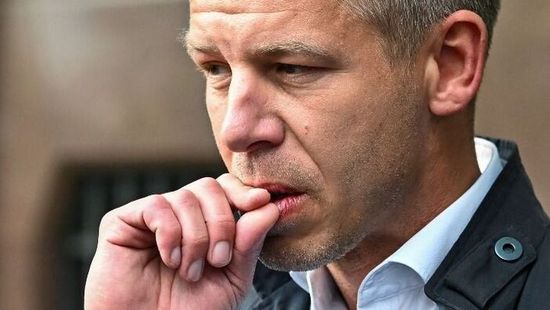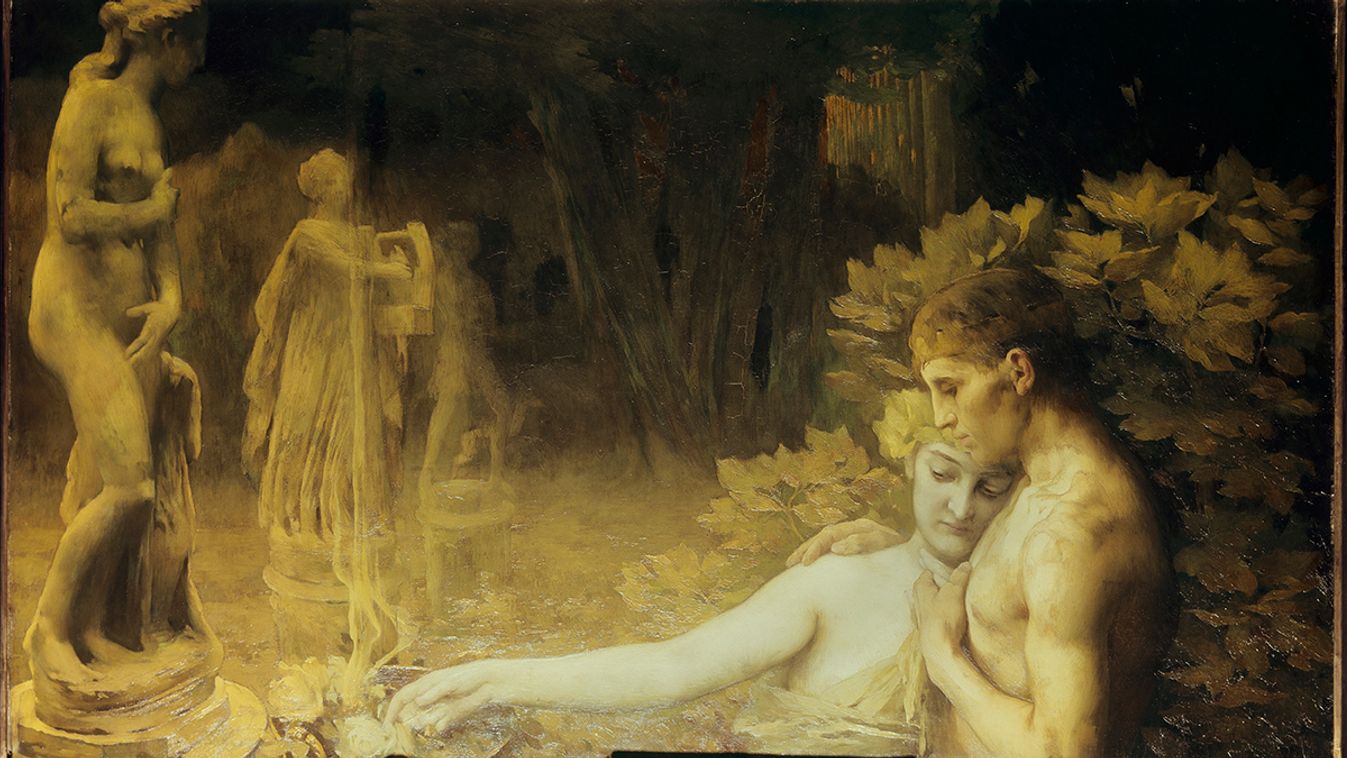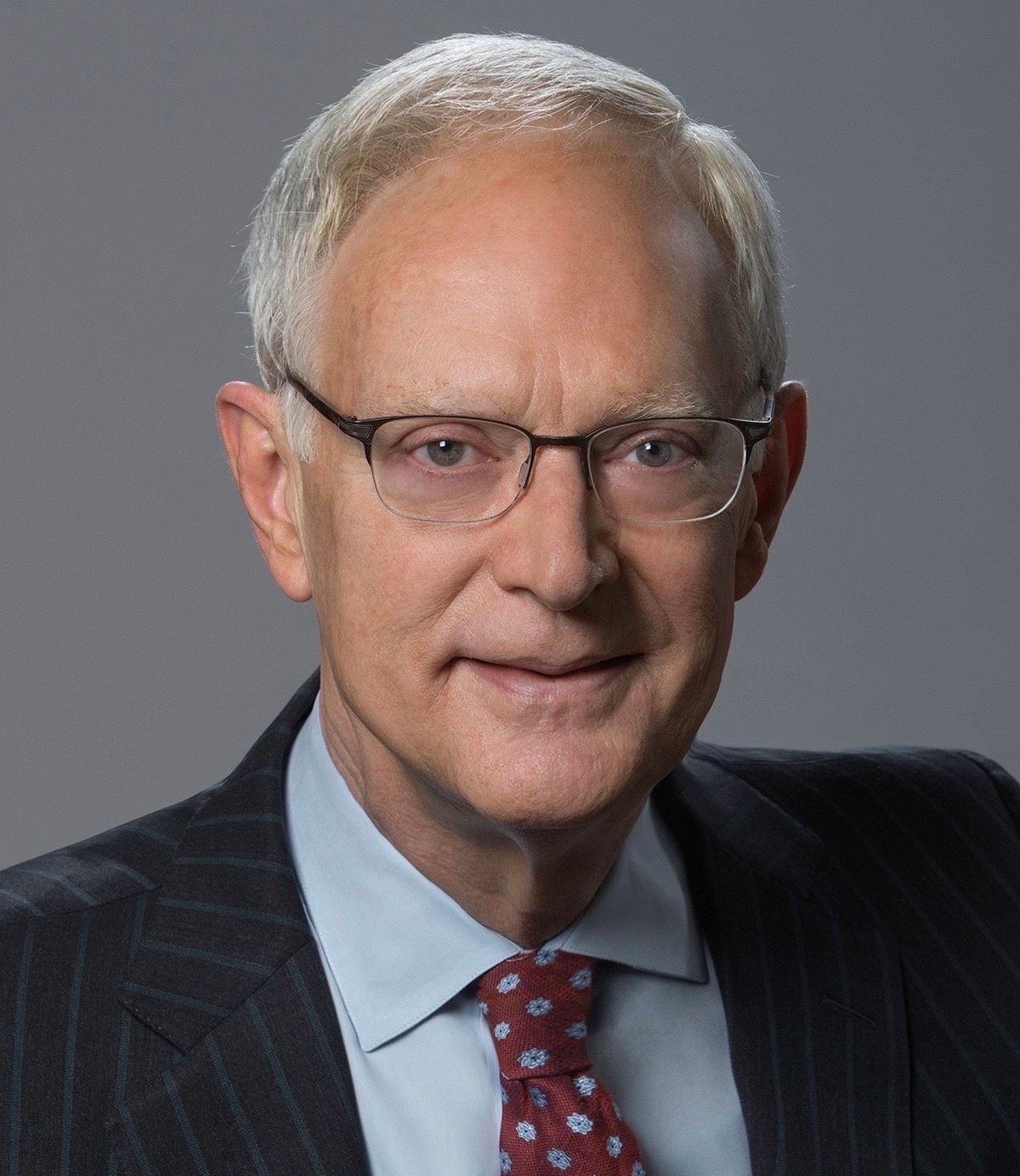Ez is napvilágot látott: Magyar Péter tudhatta, milyen bosszút forralnak Magyarország ellen

A szakértő szerint közölték a Tisza Párt elnökével, mi a feltétele a hivatalban maradásának.

Prime Minister Viktor Orbán is quite right that the contours of European integration need to be reviewed with an eye towards substantial reforms; he is ahead of the pack on this as on many other matters. The architects of “ever closer union” said it would produce a continental economic powerhouse; instead, it has produced a stultifying continental bureaucracy and, with it, the sense of decline that Mr. Orbán has emphasized – pointed out Christopher DeMuth in a conversation with Lénárd Sándor

The past decade or so revealed a sharp divide in the United States in terms of values and worldview. Many say that the country has extremely polarized while other thinkers point out that it has actually two constitutions or at least two versions of it. How do you see this growing divide in America?
That American politics has become “polarized” is a misleading cliché. It suggests that our politics has become intractable because our two parties have moved to opposite extremes. But what has happened is that the Democratic Party has moved hard to the left while

the Republican Party has stayed about where it has always been.
The Biden administration is propagating explicit racial preferences throughout American business, finance, and education, and has opened our southern border to millions of illegal immigrants. Congressional Democrats are preparing to enact on a party-line vote national toddler-care and pre-K schooling, free community college, and other major expansions of the middle-class welfare state, to be paid for mainly by trillions of dollars of borrowing. These are radical departures from traditional Democratic positions. President Biden’s 2020 election campaign instead promised moderation, stability, and a return to normal politics following the tumultuous Trump years.
There has been no such shift to the right on the Republican side. The big policy departures of the Trump years—in immigration and trade policy and the U.S. posture toward China—were well within the bounds of traditional Republican positions; indeed, President Trump’s trade and tariff policies moved towards traditional Democratic positions, and his more assertive posture toward China has now been embraced by the Biden administration. President Trump’s other signature policies—tax reduction, deregulation, opposition to multinational organizations and treaty-free international commitments—were standard Republican fare.
Republican “polarization” has instead been reactive,
consisting of strenuous opposition to the woke progressivism that has seized the Democratic Party and many of our leading media, business, academic, and cultural institutions.

The Claremont Institute recently launched an interesting project that aims to explore the unique American way of life. Against the backdrop of this growing division, is there a unique American way of life and if so what values or rights could be considered as integral parts of this life?
The American way of life has changed in many ways over our long history, as Americans have become more numerous, diverse, prosperous, urban, and mobile. Three characteristics that have endured from the founding are
a live-and-let-live attitude, a belief in opportunity and initiative, and a strong sense of patriotism.
The first two embody our ideals of liberty and equality; the third is the spirit that holds everything together.
First, most of us are attached to ways of living that are characteristic of our localities, ethnic heritages, family traditions, religions, vocations, and so on—but recognize, and appreciate, that many of our countrymen are attached to other distinctive, worthy ways and traditions.
Live-and-let-live has fortified rather than divided our nation.
We have been, for example, a notably religious people without tearing ourselves apart over matters of doctrine and revelation—and religious movements have made many illustrious contributions to our national development.
Second, we are united by an ethic of equal opportunity for all. This is not an abstract creed but rather a set of living practices. It depends on robust private initiative and public commitments—to the rule of law, limited government, and wide freedoms of inquiry, belief, and speech and of association and industry.
Third, our patriotism is strong because it is based on gratitude—for our stupendous natural resources and geography, for our long-lived Constitution and political system that have gotten us through many hard challenges, for the deeds of our ancestors, for the living practices of liberty and equality. This American patriotism is not aggressive and does not have a chip on its shoulder; it is attached to our national inheritance rather than to the state; it is unifying rather than dividing.
What caused, in your view, the departure from these values?
Today’s woke progressives believe that the features of the American way I have summarized are lies and illusions—to be “woke” means to have woken up to the realities concealed by happy talk about liberty, equality, and opportunity. Progressives want to replace live-and-let-live with an “identity politics” of grievance and resentment among racial, sexual, and other groups and of envy of “the rich.”
They would replace equal opportunity with preferences and penalties for officially identified groups,
and individual initiative with government provision for even routine incidents of life. In the service of these goals, they would restrict each of the freedoms I have itemized. Finally, by opening our borders, and by recasting our history as a story of unmitigated evil, progressives would depose American nationhood; they favor the sovereignty of the unmoored, unconstrained self.
A great many Americans remain attached to our traditional ideals and ways of life and are aghast at the strange ideologies sweeping their institutions, from Wall Street to local schools. But progressivism has become a powerful force. It draws upon the decline of family, religion, and locality and on the tribalism of social media and the internet. It has the advantages of passionate conviction, elite validation, and bureaucratic entrenchment. Which American way will eventually prevail is an open question.
In David Goodhart’s formulation, we can witness a rift between the “Somewheres” and the “Anywheres” worldwide but especially in the Western World. Can you shed light on who they are and what is the significance of their opposition in the Western World?“
Anywheres” are those who are generally well-off, highly schooled, verbal, urban, mobile, and politically progressive; they tend to work in the top reaches of business, finance, the media, and academics. “Somewheres” are those who are generally less schooled, mobile, and the rest; they tend to be rooted in local communities, attached to received social and cultural norms, and traditionalist in their politics. For more, see my essay Trumpism, Nationalism, and Conservatism. The significance of the division is that
it has reordered our politics, replacing earlier divisions such as those between North and South, labor unions and management, natives and immigrants.
In the past, wealthy, educated, well-connected people tended to be conservative—now they tend to be progressive.
Let’s turn to Europe where the challenges do not seem to be less significant than in the United States. Besides having doubts and debates about a unique European way of life, Europe as content went through a decade long crises period throughout the 2010s and the EU lost one of its strategically and economically important Member States. Let alone Brexit, there are still many visible cracks in the EU. The crack is visible between the “old” Europe before the Eastward enlargement and the “new” Europe after the Eastward enlargement. How do you see these cracks from overseas?
The politics of Central Europe is markedly more nationalist and traditionalist, and even “anti-progressive,” than that of Western Europe. To this outsider, a big part of the difference appears to be that the nations of Central Europe endured a long ordeal of Soviet subjugation, and their citizens are therefore more jealous of their sovereignty, while many in Western Europe believe that the two World Wars were caused by nationalism run amuck. But the David Goodhart formulation is useful here as well. Central Europe missed out on the tremendous postwar economic boom and its political ramifications. As a result, its peoples are generally less affluent, mobile, and multilingual than those of Western Europe; more important, they lack the entrenched establishments of globalist intellectuals and activists that bestride the media, culture, and politics of Western Europe. It will be interesting to see whether the current East-West differences continue as the economies of Central Europe catch up and memories of the Soviet era fade.
But these tendencies are not the whole story—there are also important differences within regions and unfolding political developments. Both Central and Western Europe include relatively religious nations (Poland and Portugal) and highly irreligious nations (the Czech Republic and Sweden). France is much more nationalist than Germany. Many proud Italians think their home-grown political institutions are hopelessly dysfunctional and better consigned to the ministrations of Brussels.
At the same time,
the EU badly bungled the financial, immigration, and pandemic crises of the past dozen years,
and did so in ways that dramatized the deficiencies of multinational bureaucracies as compared to national democracies. Many Western European nations now have vibrant nationalist parties and impressive leaders who are difficult to tar as retrograde xenophobes. My view is that, in Europe as in the United States, the future will depend less on sweeping philosophical theorizing and more on the records of the new nationalists in addressing the social and political problems of the day.
What are the major philosophical differences between the two approaches to the European integration? The Hungarian Prime Minister pointed out in an online conference last year that the EU has been in retreat in terms of its reproduction rate, defense spending as well as its weight in the global economy. Therefore, the current policies and emphasis of the European integration should be reviewed. How do you see this approach?
Prime Minister Orbán is quite right that the contours of European integration need to be reviewed with an eye towards substantial reforms; he is ahead of the pack on this as on many other matters. Despite the EU’s string of failures, it is attempting to impose itself ever further into the domestic laws and politics of member nations—and is doing so in ways that exempt its most powerful Western members. This seems to me to be an inherently unstable situation.
The architects of “ever closer union” said it would produce a continental economic powerhouse; instead, it has produced a stultifying continental bureaucracy and, with it, the sense of decline that Mr. Orbán has emphasized.
Historically, competition among distinctive national cultures and political orders has been key to the great achievements of European civilization. Recognizing that national diversity is a strength is the sine qua non of EU reform and European revival.
The Hungarian Prime Minister aims to pursue policies that protect traditional European values and lifestyle. How do you see the recent efforts that Hungary is trying to make to make the country as well as Europe more competitive and strong?
Hungary has certainly become more competitive and strong since Prime Minister Orbán and the Fidesz Party won their landslide victory in the dark days of 2010. They instituted substantial reforms in tax policy, debt management, rural development, and other areas, which contributed to solid growth in capital investment, wages, and national and per capita economic output, and to solid reductions in unemployment and (before the pandemic) public debt.
The Prime Minister’s tough, EU-defiant immigration measures averted clear-and-present dangers others were ignoring.
His measures for improving family fertility have, through trial and error, begun to show promising results. Above all, he has devoted himself to protecting Hungary’s historical memory, cultural integrity, and national independence, through concrete measures and a series of deep, lucid addresses.
The barrage of attacks on Mr. Orbán in the Western media ignore the two most important things to be said about him. First, he has proven to be a highly popular and resilient politician and an icon of Hungarian patriotism. Second, his repeated electoral victories have given him and his party extraordinary scope of action—but in a nation facing extraordinary external constraints and pressures from every direction. Serious criticism would begin with an acknowledgement of these circumstances, but alas that is not the political world we are in today. The claims of foreign critics that Mr. Orbán’s position is the result of gerrymandering, parliamentary skullduggery, and false consciousness among Hungarian voters are partisan talking points commonplace in all democracies supplied by his domestic political opponents.
The recently launched Conference on the Future of Europe might provide a forum for discussion about the future of the European integration as well as of the continent? What role might or should the Central European approach play in that Conference especially after the UK left the EU?
Exercises such as the Conference on the Future of Europe can be valuable occasions for deliberation on large questions of structure and purpose, away from the thrusts and parries of active politics. But the future of Europe will ultimately be determined by the actions of nations and EU hierarchies in resolving specific conflicts.
The UK would not have left the EU if Brussels had been flexible and reasonable in accommodating British demands for greater national autonomy.
It would be nice to think that the EU mandarins learned something from that experience, and so will be less imperious and high-handed in accommodating the nations of Central Europe. But so far there is little evidence of this, and many indications, such as the effort to cartelize corporate taxes across the continent, that the EU is continuing to move in the wrong direction.